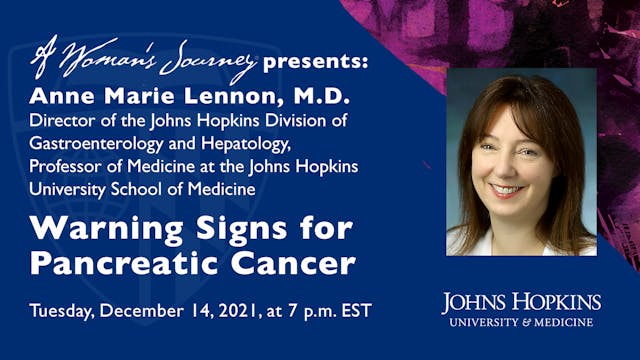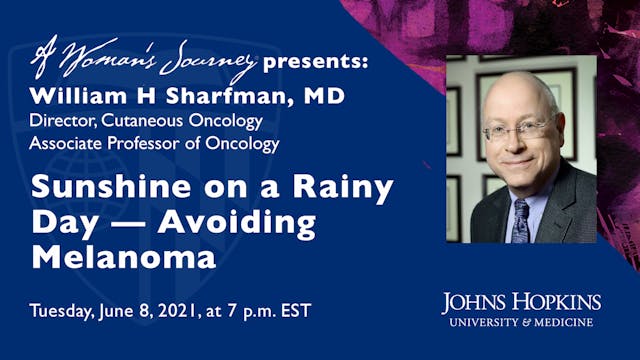Comprehensive Primary Health Care: Blueprint for Resilient Health Systems
Medicine & Public Health
•
1h 1m
Do you know the difference between "comprehensive primary health care" and "primary care?" Join Dr. David Bishai, professor in the Population, Family and Reproductive Health Department at Bloomberg School of Public Health, and Dr. Meike Schleiff, assistant scientist in the Health Systems program, International Health Department, as they help us distinguish that difference, debunk a set of common myths related to how we can best improve our health, and cite examples of countries that improved health with comprehensive primary health care. Their discussion will also describe the potential for PHC to support the COVID-19 response and achievement of the SDGs. To learn more, visit jhu.edu/hopkinsathome
Up Next in Medicine & Public Health
-
A Woman's Journey: Warning Signs for ...
Researchers have found that pancreatic cysts can be precursors to pancreatic cancer. Gastroenterologist Anne Marie Lennon, M.B.B.Ch., Ph.D., underscores why this is so important, reveals how pancreatic cysts can evolve into cancer and discusses research conducted at Johns Hopkins Medicine.
-
A Woman's Journey: Surprising Tips to...
The American Heart Association says cardiovascular disease is the leading cause of death in the United States and the CDC reports that over 60 million women (44%) in the United States are living with some form of heart disease.2 Heart disease is the leading cause of death for women in the United ...
-
A Woman's Journey: Sunshine on a Rain...
The American Cancer Society estimates that in the United States in 2020, more than 100,000 new melanomas will be diagnosed and approximately 6,850 people will die of the disease. Before hitting the beach to celebrate summer, listen as oncologist William Sharfman reviews the risks, signs and sympt...



